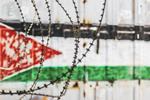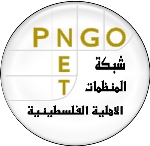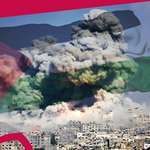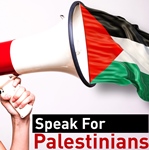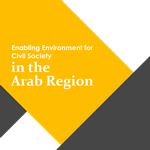West Bank and Gaza
Published on Tue, 2021-05-11 14:14
Arab NGO Network for Development (ANND) strongly condemns the attacks on defenseless Palestinians in Jerusalem and its neighborhoods, especially the attempt to uproot the residents of Sheikh Jarrah, calls on the international community to launch the broadest solidarity campaign with the Palestinian people and provide international protection for defenseless citizens in implementation of international laws, especially the Geneva Convention.
|
Published on Thu, 2020-05-14 12:11
The COVID-19 health crisis added to the multidimensional crises in the Arab region and their manifestation in conflicts, wars, economic and social inequalities, and the increasing number of refugees and migrants. It could lead to severe repercussions at the economic, social, and political levels. According to an ESCWA preliminary estimate, the region will lose at least USD42 billion in 2020 due to the Corona pandemic. ESCWA also considered that the global spread of the virus and the growing impact of low oil prices could aggravate income losses. Unemployment is expected to increase by 1.2 percentage points, meaning the loss of around 1.7 million jobs. The Arab region registers some of the highest rates of inequality around the world, and informal employment accounts for 50% of jobs. It also lacks universal social protection systems and is thus unable to protect workers and ensure their dignity during work stoppages.
|
Published on Tue, 2020-02-04 22:27
Arab NGO Network for Development (ANND) issues a statement on the ‘Deal of the Century’ and recalls that an immediate end to Israeli occupation and the recognition of the universal, indivisible and inalienable Palestinian Rights are the foundations of a sustainable Peace in the Middle East.
On January 28th, 2020 the Middle East Peace Plan known as the Deal of the Century was presented by the US President Donald Trump in Washington DC. A “peace” plan that was built unilaterally and that considers the Israeli occupation as the exclusive partner. The “peace” plan markets an illusion of peace at the expense of Palestinian people’s rights and dignity. It gives further impunity to all human rights violations committed by the Israeli occupation, including through legalizing illegal Israeli settlements.
|
Published on Mon, 2019-07-15 11:43
PNGO Network, Social Watch member in Palestine, issued a paper entitled “The Impact of Current Situation on Women Protection in the Gaza Strip”
The paper highlights the effect of the protracted crises in the Gaza Strip on women who become shock-absorbers during crisis. Also, it illustrates the key barriers impede the work of national women organizations to intervene in women protection and addresses the required steps from varies parties to achieve women protection in Gaza.
|
Published on Thu, 2019-05-09 20:14
The Palestinian Non Governmental Organizations Network (PNGO) calls upon the international community to immediately pressure the Israeli occupying forces to stop attacks on the Gaza Strip. PNGO condemns the Israeli occupying forces continuous barbaric attack on Palestinian civilians especially children, women, civilian homes, cultural institutions and media outlets.
Urgent Call for Action PNGO calls upon the international community to immediately pressure the Israeli occupying forces to stop attacks on the Gaza Strip Palestinian Non Governmental Organizations Network (PNGO) condemns the Israeli occupying Forces continuous barbaric attack on Palestinian civilians especially children, women, civilian homes, Cultural institutions and media outlets.
|
Published on Mon, 2019-02-18 11:59
In Palestine, the main obstacle to realizing the SDGs is the occupation that continues to confiscate lands and, as reported by UNCTAD, deny Palestinians the human right to development. The indicators are alarming: unemployment has reached 27.7 percent in the Palestinian territories occupied in 1967 and 44 percent in the Gaza Strip. The poverty rate for the year has reached 29 percent in 2017 and it is 53 percent in the Gaza Strip, reflecting the catastrophic effect of the 10-year ongoing blockade.
|
Published on Fri, 2018-08-17 12:15
With over a 50 year stuggle under Israeli occuptation, Palestinians’ call for the right to self-determination is not something new. Systematic and gross human rights violations they face neither.
They are daily realities for Palestinians; while their country is now being defined as “least desirable, the least inviting and the least livable place on earth1”.
However their struggle for freedom is constant. In each and every occasion they call for an immediate end to occupation and blockade of the Gaza Strip and the ethnic cleansing in Jerusalem and other places in West Bank. They urge Israeli authorities to respect all United Nations resolutions and its obligations under international law recognizing their right to self-determination. Civil society activists and human rights defenders are at the forefront becoming a voice for these calls. They advocate for international solidarity and action as well.
|
|
Two years have passed since the decision by the 90th session of the Palestinian Council of Ministers on 19 February 2016, to form a national team to lead and coordinate national efforts to implement the United Nations 2030 Agenda for Sustainable Development in order to contribute to the dissemination of the Agenda, and to achieve the Sustainable Development Goals. However, the outcomes and results of this national team have not been realized, despite the fact that the government attempted to integrate the goals and targets into its national development strategies.
The main obstacle to realizing these goals and targets is the colonial military occupation that continues to abolish all means of development in Palestine, in addition to ongoing land confiscation, continuous looting of Palestinians financial and natural resources, West Bank fragmentation due to settler expansion and the Gaza Strip blockade. UNCTAD’s latest study concludes that Palestinians have been denied the human right to development after half a century of occupation and appropriation of land and resources.
The situation is shown in a number of alarming indicators. According to the Palestinian statistics bureau, almost one in three people (29.2 percent) were living below the poverty level in 2017. With 53 percent of individuals in Gaza Strip found to be poor in 2017, the poverty rate for Gaza Strip was more than four times higher than that of the West Bank, which was 13.9 percent, reflecting the catastrophic effect of the 10 year and ongoing blockade on the Palestinians.
|
Published on Wed, 2017-09-27 15:09
The Arab NGO Network for Development (ANND) launched a book on the enabling environment of civil society in the Arab region. The publication aims to present an overview of the current situation of civil society organizations in Tunisia, Egypt, Lebanon, Iraq, Syria, and Palestine. It uses several country-specific indicators regarding the establishment of civil society organizations and their success. The current conflicts raging in the Arab region constitutes a serious challenge, especially in lack of attention to laws regarding the work of civil associations, in addition to the shifts faced in funding.
The publication highlights several legal challenges, especially those resulting from the lack of commitment to the principles of the separation of powers, as applied by democratic societies, as laws and regulations are often politicized. The book includes several recommendations to invigorate the work of civil society organizations in the regional, in order to consolidate the values of justice, equality, and sustainable development.
|
SUSCRIBE TO OUR NEWSLETTER
Submit

|



